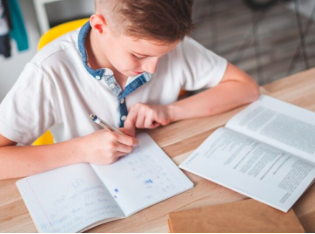Participating in class is about more than just raising your hand—it’s about engaging with the material, your peers, and your teacher in meaningful ways. Whether you’re a student looking to get more involved or a parent or teacher encouraging better habits, building the right study routines can make all the difference.
Here are some simple and effective study habits that can boost class participation and help students feel more confident and prepared.
1. Preview the Material Before Class
Taking just 10–15 minutes to skim through the chapter or topic before it’s discussed in class helps students feel more familiar and comfortable with the content. This makes it easier to follow the discussion and ask relevant questions.
2. Take Smart Notes
Note-taking isn’t just about copying what the teacher says—it’s about actively processing information. Use bullet points, highlight key terms, and write down questions. Later, these notes can be used to join in class discussions or ask thoughtful questions.
3. Set a Routine Study Schedule
Consistency is key. When students study regularly instead of cramming, they retain more information and feel more prepared to speak up in class. Even 30 minutes a day can make a big difference!
4. Practice Active Listening
Class participation isn’t only about speaking—it’s also about listening. By paying close attention, students can build on others’ ideas and contribute more meaningfully to discussions.
5. Study with a Friend or Group
Group study sessions help students hear different viewpoints and clarify concepts before class. This makes them more comfortable participating, as they’ve already talked through the material in a safe, low-pressure environment.
6. Stay Organized
Keep materials—like notebooks, textbooks, and homework—in order. Knowing where everything is can reduce stress and allow students to focus on learning and speaking up, not on finding yesterday’s worksheet.
7. Use Positive Self-Talk
Confidence plays a big role in participation. Encourage students to replace negative thoughts like “I’ll say the wrong thing” with “It’s okay to try and learn.” With time, confidence builds, and so does participation.
Final Thoughts
Improving class participation doesn’t happen overnight, but with the right study habits and a positive mindset, students can become more engaged and confident learners. These habits support not only academic success but also important life skills like communication and critical thinking.
Encourage students to take small steps each day—and celebrate the progress along the way!














